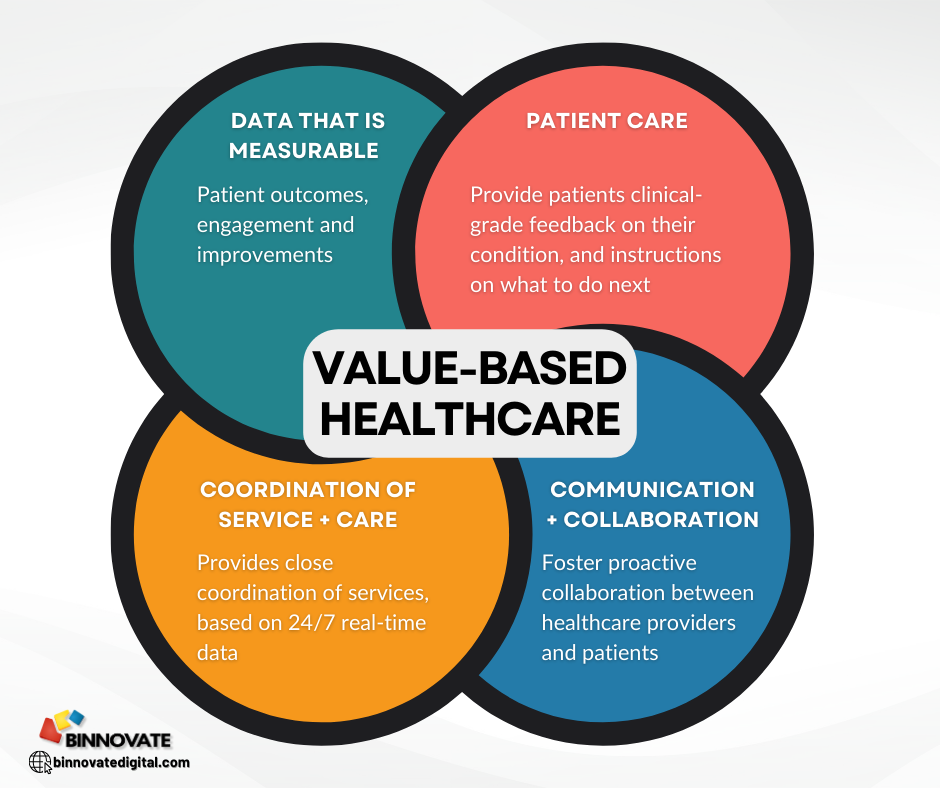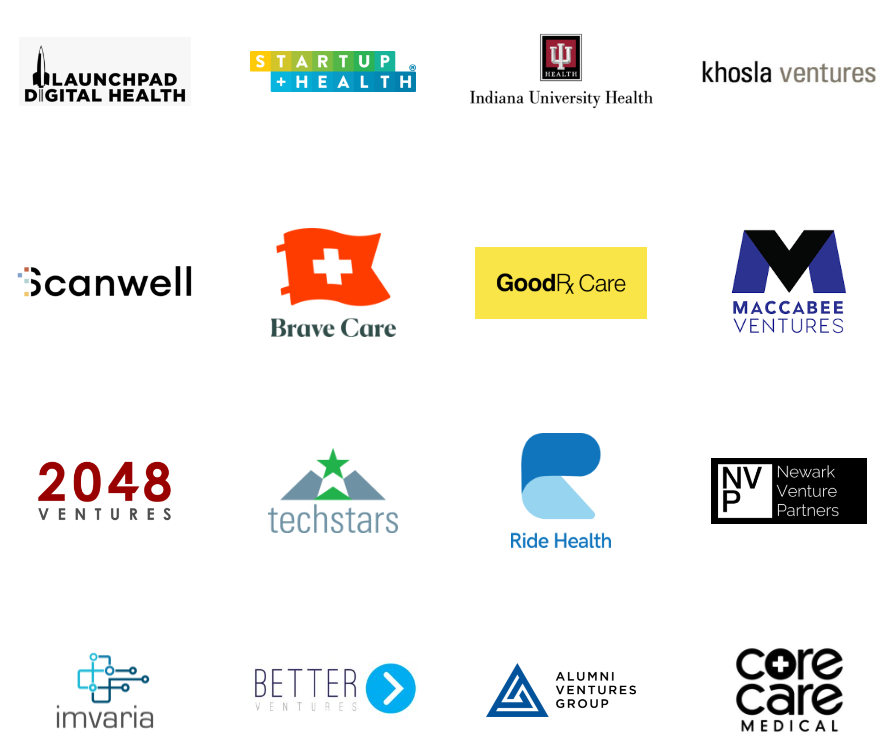In the ever-evolving world of healthcare, innovation is the driving force that propels healthcare organizations, startups, and digital health pioneers into the future. As the healthcare landscape undergoes rapid transformation, understanding how to navigate this dynamic environment is crucial for success.
In this comprehensive guide, we will explore the key strategies and insights that are essential for healthcare professionals, startups, and healthcare organizations looking to maximize their potential in the healthcare innovation sphere.
Why This Guide Is Worth Reading
In the world of healthcare, innovation is not a luxury; it's a necessity. Whether you're a healthcare organization looking to optimize your operations, a startup trying to break into the industry, or a digital health enthusiast seeking to make a difference, this guide is your roadmap to success. We'll delve into the intricacies of healthcare innovation, offering actionable insights and practical advice to help you thrive in a rapidly changing environment.
Value Proposition of Your Product or Service
Before reaching out to potential healthcare decision-makers, it is vital to clearly articulate your product or service's value proposition. C-level executives often focus on value-based care and digital transformation within their organizations. Ensure your offering aligns with these goals and clearly communicates how it can address its pain points and improve patient outcomes. Highlighting successful implementations in other health tech companies or medical device manufacturers can further strengthen your case.

Leverage LinkedIn: The Power of Professional Networks
LinkedIn is a powerful tool for healthcare prospecting sales. It allows you to connect with key decision-makers in health systems and specialty clinics, providing a platform to showcase your expertise and build relationships. Begin by optimizing your LinkedIn profile to reflect your unique selling proposition and expertise in the healthcare industry. Share valuable content and engage with influential individuals to establish yourself as a thought leader. Join relevant LinkedIn groups and participate in discussions to expand your network and gain insights into the challenges and needs of your target audience.

Research and Personalize Your Outreach
When reaching out to healthcare decision-makers, a personalized approach is crucial. Take the time to research each prospect, including their organization, role, and any recent initiatives or challenges they may be facing. This knowledge will allow you to tailor your messaging and demonstrate how your product or service can address their specific needs directly. Personalization shows that you have taken the time to understand their situation better and increases the likelihood of engagement.
Positioning Your Solution as a Strategic Advantage
During your prospecting sales efforts, focus on positioning your healthcare innovation as a strategic advantage rather than just a product or service. Explain how your solution can drive positive outcomes, improve patient care, and streamline processes within their organization. Emphasize how your offering aligns with their long-term goals and strategic initiatives. By highlighting the potential impact on key health metrics and ROI, you can enhance the value proposition of your solution and capture the attention of your prospects.
Building Trust with Decision-Makers Through Credibility Points
Leverage credibility points to alleviate concerns and build trust with potential healthcare decision-makers. This can include displaying case studies or success stories from other digital health, medical device, or med tech companies. Highlighting the proven effectiveness of your prospecting system, as backed by exited healthcare startup founders on your management team, can further reinforce your credibility. Additionally, showcasing pre-nurtured relationships with decision-makers in select hospitals and specialty clinics demonstrates your ability to connect with key players in the healthcare industry.
For example, here are some case studies from Binnovate Digital:
Case Study 1: RenalTracker B2B2C Patient Leads
Goal: Book meetings w/ potential customers: dialysis clinics & ACOs
Objectives: a. Have a scalable outreach system with clinics, hospitals and care orgs
b. Decrease cost per lead by 50%
1,600% increase in weekly leads and a steady 73% decrease in lead cost in 6 months
Case Study 2: Augmented Reality Industry
Baseline: Pre-product-market fit, No scalable system, Time-consuming One-on-one outreach.
Goal: Get sales appointments with potential customers within 4 weeks
Objectives: a. Find alignment in marketing message and first-mover niche
b. Book appointments with potential customers
Case Study 3: RenalTracker Fundraising
Goal: Fundraising. Founder-to-VC introductions.
Objectives: a. Have a scalable outreach process and system to book appointments with founders and VCs.
Up to 90% open rate and 17% reply rate using Binnovate prospecting system
Overcoming Objections and Addressing Concerns
During the sales process, potential clients may have objections or concerns. Common objections might revolve around the guarantee of doubling sales appointments within the promised timeframe or the effectiveness of the prospecting system. Address these objections by sharing testimonials or success stories from previous clients who have experienced remarkable results. By providing solid evidence of your ability to generate qualified leads and drive ROI, you can overcome objections and instill confidence in your prospects.
Binnovate's Proven Healthcare Prospecting System
Healthcare innovations have the potential to transform patient care and revolutionize the industry. However, without the right sales techniques and prospecting strategies, these innovations may never reach their full potential.
Partnering with Binnovate Digital can help generate pre-qualified leads and optimize the sales process bringing together the necessary components for successful healthcare innovation sales.
Successful Health Business Models
One of the foundations of selling healthcare innovations is having a successful health business model. This involves generating a predictable, profitable, and sustainable revenue stream. To achieve this, developing a deep understanding of the customer's needs and workflows is essential. By showcasing how innovation can streamline processes, improve outcomes, and reduce costs, you can position it as a valuable asset to the customer's business. Moreover, the business model must be flexible enough to evolve as healthcare systems change over time.

Navigating Long Sales Cycles
Sales cycles can be lengthy and complex in the healthcare industry, with different decision-makers involved. Successfully navigating these long sales cycles requires a well-organized and methodical approach. Managing a strong sales pipeline is crucial to ensuring a profitable sales process. By effectively tracking leads, customer interactions, and understanding pain points, you can streamline the process and gain real-time insights.
Understanding Different Customer Segments
Different customer segments in the healthcare industry, such as hospitals, clinics, and labs, have unique pain points, goals, and decision-making processes. It is essential to tailor your sales approach to meet the specific needs of each segment. By deeply understanding their challenges and priorities, you can position your healthcare innovation as a solution addressing their pain points.
Engaging Potential Customers
Engaging potential customers in the healthcare industry requires a value-based approach. Value-based messaging showcases how innovation can improve patient outcomes, reduce costs, and provide a competitive edge. By aligning value-based messages with internal stakeholders, such as clinicians and administrators, you can ensure buy-in and demonstrate the effectiveness of your healthcare innovation. Building relationships and establishing trust with potential customers is crucial in the prospecting process.
Aligning with Internal Stakeholders
In the complex healthcare industry, successful sales of healthcare innovations often require collaboration with internal stakeholders. This includes clinicians, administrators, and other decision-makers within healthcare organizations. By engaging these stakeholders early in the process and understanding their needs and priorities, you can develop tailored proposals that address specific pain points and have a higher chance of success.
Sell Your Healthcare Innovations with Our Inside Sales Experience
With our proven-effective prospecting system and commitment to generating quality leads, potential customers can expect to see a significant increase in leads and cost savings, resulting to long-term success. Binnovate operates on a pay-per-performance basis, ensuring clients only pay for qualified calls they take, without the hassle of costly hires. Don't miss out on a profitable sales process. Contact us today to start generating pre-qualified leads and achieving your sales targets in just 6-8 weeks!
Clients We Partner With
- a medical device, digital health, medtech or consultancy serving the healthcare market, we will help you implement our system for your sales team—whether that’s a team of 1 or a full department
- if the target healthcare customers you’re serving are going through long sales cycles (3 months or more)
- if your average contract value (ACV) is at least $20,000 or more per closed account
- if you have narrowed your ideal customer profile (ICP) to at most 3 roles within the target organizations. If you’re earlier than this, we recommend you hustle to get the first 12 or more research calls and close at least 1
- if you have at least 1 case study or a successful pilot

What's in It for You
- Pay only for qualified appointments you take. If we don't deliver, you don't pay a dime.
- We take care of the heavy lifting: market research, target list building, copywriting, and back-end integrations.
- We take care of all the tech-stack: setup, maintenance. We even pay the monthly fees! (except CRMs).
- We reach out using personalized emails, human-made LinkedIn Connections, and phone calls for follow-ups and qualifications.
